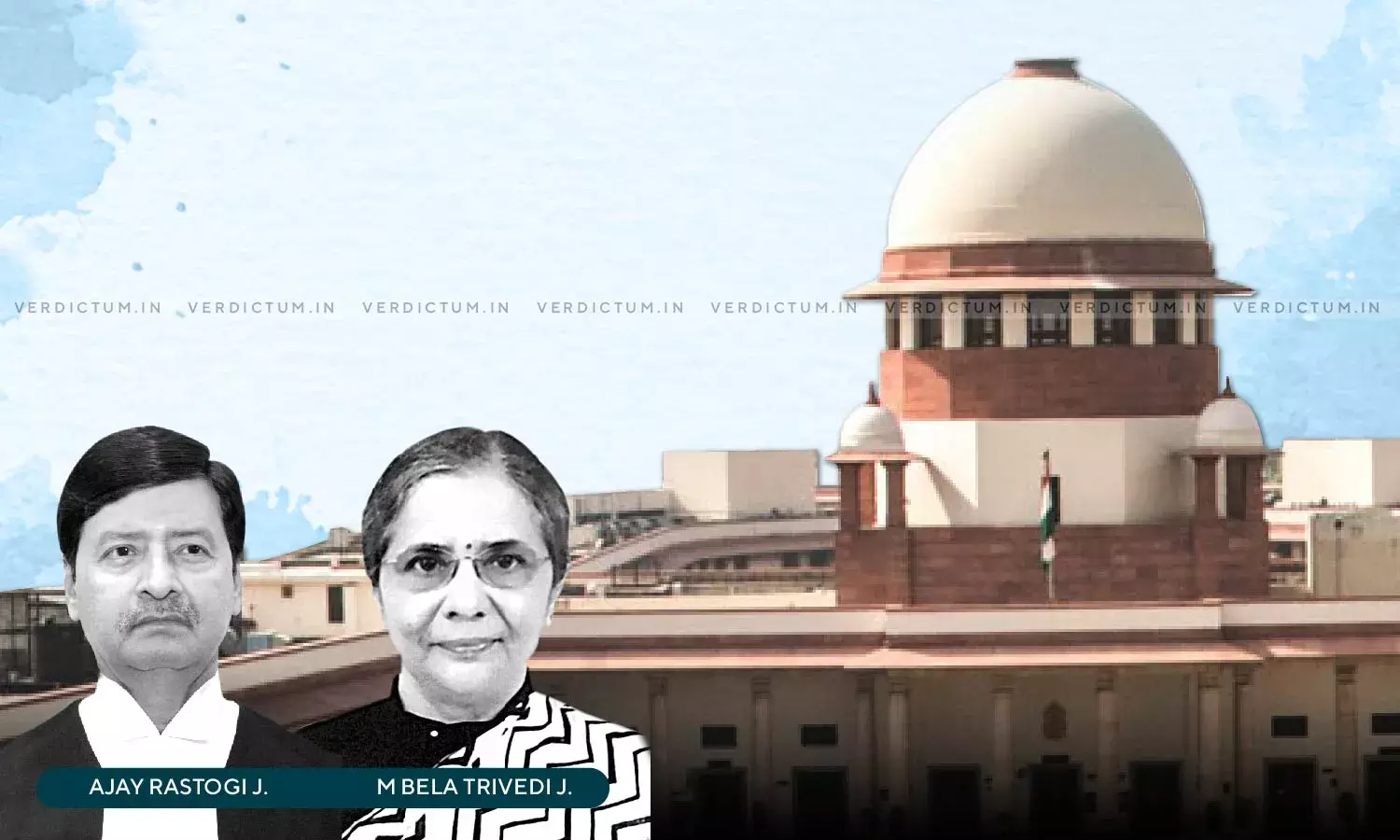Failure To Establish That Insurance Claim Falls With Purview Of Exclusionary Clause Of Policy Renders Contract In Favour Of Insured: SC

Finding that there was no material to show that the entire incident and the resultant damage to the insured property was caused as a result of the malicious act of the Respondent (complainant), the Supreme Court held that even if allegations against Gaffar Molla and his associates are taken at their face value, it is difficult to accept that the damage caused by the frenzied mob which had chased said Gaffar Molla and his associates, was caused due to malicious act on the part of Respondent and therefore was excluded from the coverage in view of Clause V(d) of the subject Policy.
A Two Judge Bench of Justice Bela M. Trivedi and Justice Ajay Rastogi observed that “wherever such an exclusionary clause is contained in a policy, it would be for the insurer to show that the case falls within the purview of such clause. In case of ambiguity, the contract of insurance has to be construed in favour of the insured”.
Advocate Manjeet Chawla and Vishnu Mehra appeared for the Appellant, whereas, Advocate Susmit Pushkar and Sukumar Pattjoshi appeared for the Respondent.
Going by the background of the case, the Respondent running a Resort at West Bengal had obtained two insurance policies from the Appellant (Insurance Company) in respect of the buildings of the said Resort with plant and machinery accessories and furniture. In 2009, a mob of about 200-250 persons damaged the insured property resulting in loss to the complainant. The incident was reported to the police, where after explosive substances were found and recovered from the housing material-cum-electrical storeroom of the Vedic village of the Respondent. Later, after the submission of the surveyor’s report assessing the loss to the tune of Rs. 202.216 lakhs, the Appellant repudiated the claim stating that the loss was an outcome of a malicious act and therefore fell within the exclusions under Clause V(d) of the Subject policies; and that there had been a breach of warranty on the part of the assured in respect of the class of constructions covered under the subject policies. The consumer complaint filed by the Respondent challenging the said repudiation of the claim before the National Commission (NCDRC) was partly allowed. Hence, present appeal.
From a perusal of the Subject policies, the Apex Court found that the physical damage or destruction by external violent means directly caused to the property insured was covered, but the loss, damage or destruction to the property caused by burglary, housebreaking, theft, larceny or any such attempt or any omission of any kind of any person in any malicious act was not covered.
The Bench further stated that if the Insurance company alleges that the loss/damage was not caused by any malicious act, the burden of proving the contrary would be upon the insured.
“Though, it is true that the said Gaffar Molla and his associates had taken shelter at the Vedic Village when the mob became frenzied and chased them, and though it is also true that during the course of investigation the pipe guns and other explosive materials were found lying in the compound of Vedic Village, nonetheless the alleged incident of firing and causing death of a person appears to have taken place on the spot during the football match being played at the football ground”, added the Bench.
While adding that the Surveyor’s Report is not the final one nor is so sacrosanct as to incapable of being departed from, and that there has to be some satisfactory reasons made out by the insurer for not accepting the Report, the Bench concluded that the Appellant had failed to discharge its burden of bringing the case within exclusionary clause V(d) of the policies in question.
Accordingly, the Apex Court dismissed the appeal.
Cause Title: National Insurance Company v. Vedic Resorts and Hotels Pvt Ltd
Click here to read/download Judgment

